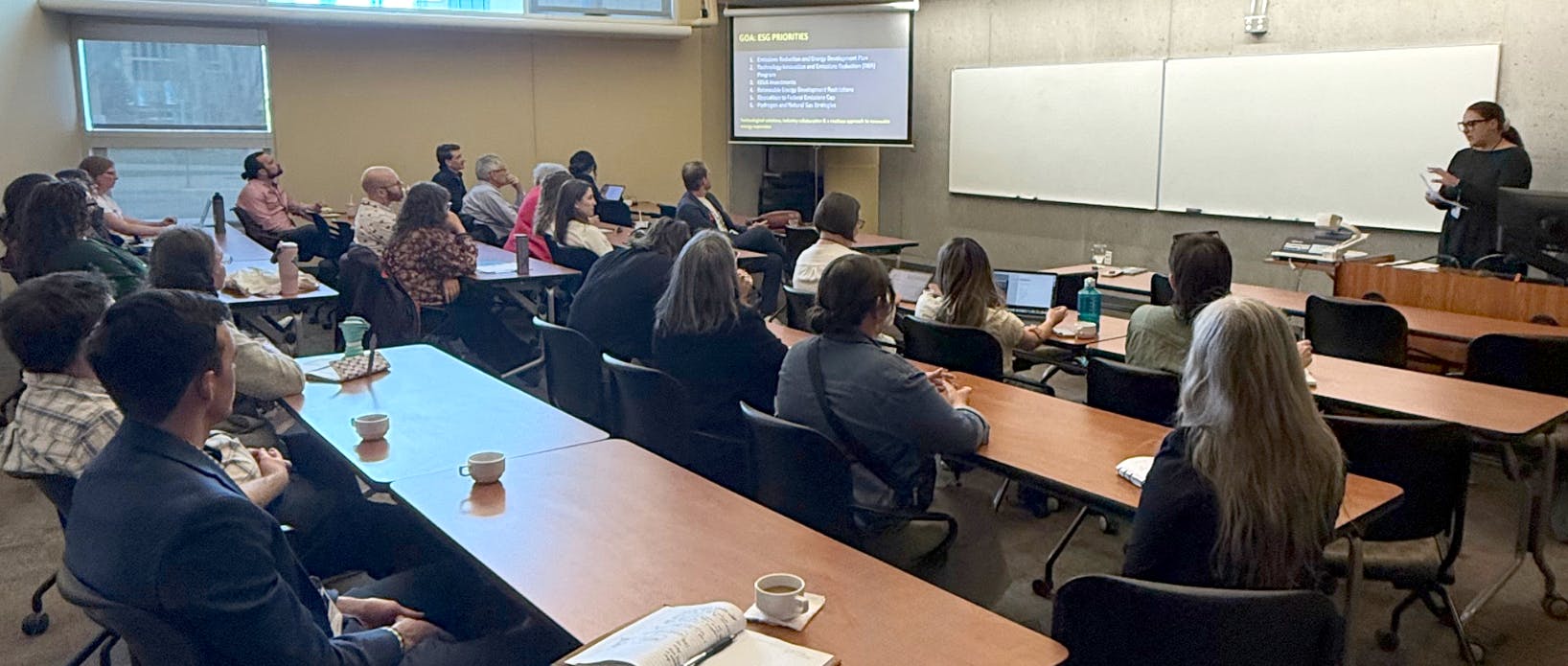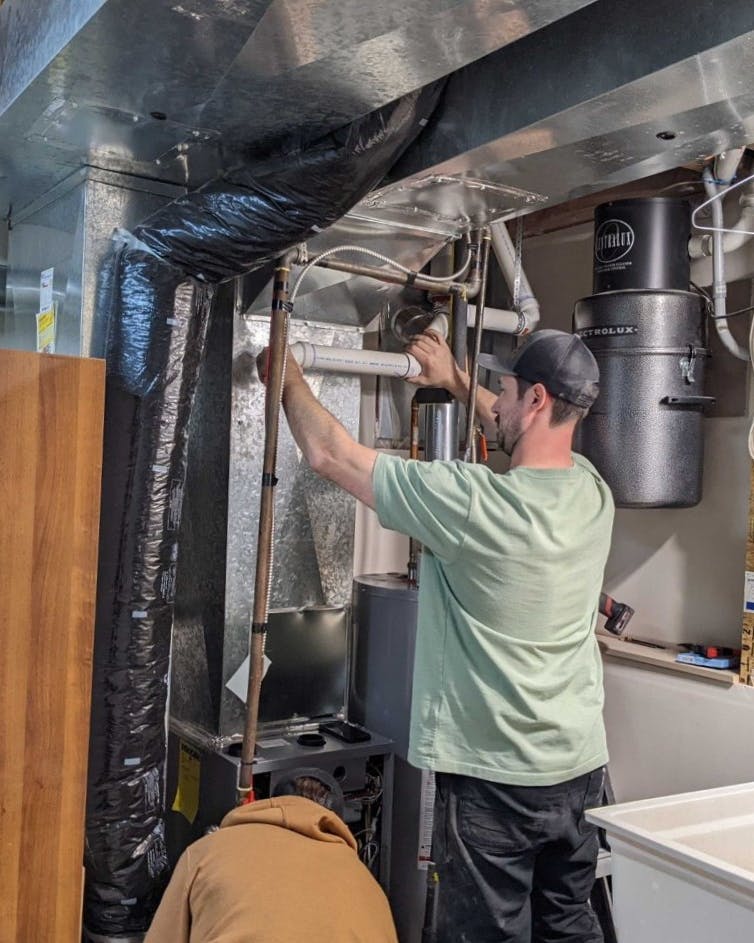Building environmental influence: Government relations for changemakers

At our Environmental Gathering this past May, Counsel Public Affairs, a public affairs firm, hosted a session titled Power, People and Policy: Demystifying Government Relations. The session provided strategies, best practices and advice to advance attendees' government relations confidence, skills and capacity, focusing mainly on provincial relations.
The session sparked important conversations and left us with insights that are worth sharing. Here are some key reflections and takeaways to help you on your government relations journey:
1. Government relations isn’t just lobbying
Successful government relations isn’t about one-time transactional meetings. It’s about building long-term relationships with decision-makers and influencers. This work requires intentionality, patience and strategic follow-through. It’s about playing the long game and being a trusted, credible and consistent voice.
2. Timing is everything
Understanding Alberta’s legislative and election cycles helps you know the best times to engage. The Legislature sits twice a year: In the spring (February to May) and fall (October to December). The provincial budget comes out at the end of February every year, with planning starting in early fall, which is an ideal time for organizations to begin budget-related discussions with the government. During the session, Members of the Legislative Assembly (MLAs) are mostly in Edmonton, focused on debates, committee work and reviewing bills. It’s useful to track legislative business during this time. However, opportunities to build stronger relationships with MLAs and public servants often happen between sessions, when MLAs are back in their constituencies.
Elections in Alberta are required by legislation to take place every four years, and the months leading up to them are often characterized by increased public engagement and platform development. This period can be useful for influencing party platform commitments, meeting candidates and amplifying your organization’s issues and priorities. Similarly, early in a government’s mandate (especially in the first year) is the ideal time to help shape the agenda while it’s still forming.
Pro tip: Build a calendar of key political events (session dates, budget announcements, elections) and map your engagement plan accordingly.
3. Defining your ask
Effective conversations with decision-makers are grounded in a clear and specific request. Your ask should reflect your strategy, be tailored to your audience, be publicly and politically context-aware and understand potential repercussions. It’s also wise to anticipate and prepare for potential concerns or pushback. Make your ask meaningful, manageable, realistic and memorable.
4. Communication tips
Overall, less is more. Avoid overwhelming people with too much data or jargon. Storytelling, values-based framing and demonstrating broad-based community support can be more compelling than stats alone. Use plain language and get to the point, especially when dealing with busy public officials and staffers.
5. Who influences and participates in the decision-making process?
Political influence extends beyond Cabinet Ministers and local MLAs. Effective government relations in Alberta means understanding the full ecosystem of influence, which includes:
Cabinet Ministers: They set direction and make final decisions in their portfolios. It’s advised to know which minister is responsible for your issue and align your message with their mandate.
Members of the Legislative Assembly (MLAs): Local MLAs can be influential, especially if they hear consistent concerns from their constituents. They can also champion issues internally with the caucus or Cabinet.
Deputy Ministers: As the most senior public servants in a ministry, they oversee operations and ensure government priorities are implemented. They are powerful, non-partisan actors who value credible, well-researched input.
Assistant Deputy Ministers (ADMs) and Executive Directors: These public servants are often subject-matter experts and the key point of contact for day-to-day policy or program decisions. Building trust and offering constructive solutions at this level can lead to real policy influence.
Ministry/departmental staff: Ministry staff play a central role in policy development and decision-making, and often act as a filter on what issues reach leadership and the Minister. Their contributions to the public policy decision-making process include: Developing policy options, developing recommendations, coordinating stakeholder input, synthesizing stakeholder feedback and interdepartmental coordination.
Political staff: Ministerial assistants, senior policy staff and Chiefs of Staff help shape decisions and act as filters for what policy issues do and do not make it onto the radar of their Ministers. Don’t overlook the importance of building rapport with them.
Pro tip: Map out who’s who across political and public service roles related to your issue, and build relationships at multiple levels. Influence happens both inside and outside the political spotlight.
The Environmental Gathering session concluded with a strong sense of momentum for attendees, highlighting the potential of coordinated, community-based influence to shape policy discussions. The significance of a well-informed, strategic approach to government relations was clear in being a critical tool for advancing environmental priorities in Alberta.
Alberta Ecotrust is continuing to partner with Counsel Public Affairs this Fall to offer two more free government relations sessions. Have a topic you want us to cover? Please fill out this survey by August 31, 2025. Watch our social media and upcoming newsletters for more details or email us at info@albertaecotrust.com.
Thank you to the Calgary Foundation and the Small Change Fund for supporting this session and our government relations work.
Related posts
Explore our most recent posts.



